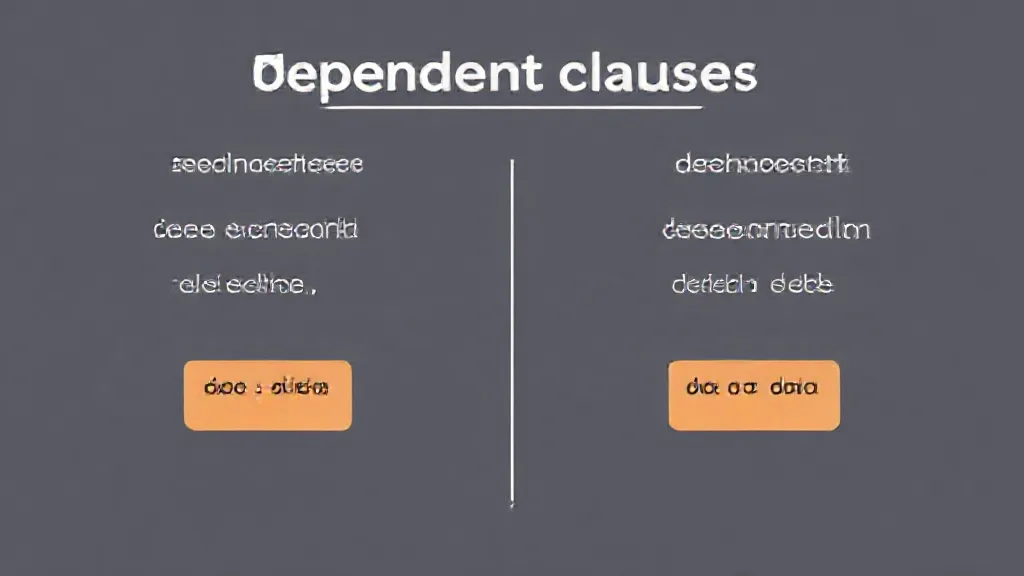Dependent clauses are often misunderstood elements of grammar that can confuse both students and educators alike. Defined as clauses that cannot stand alone as complete sentences, they rely on independent clauses to provide context and meaning. This article delves into the reasons behind the common misconceptions surrounding dependent clauses, their structure, and their significance in enhancing the richness of language.
Understanding Dependent Clauses
At the core of the confusion surrounding dependent clauses lies their definition and function. A dependent clause, also known as a subordinate clause, includes a subject and a verb but does not express a complete thought. For example, in the sentence "Although it was raining," the clause cannot stand alone as it leaves the reader expecting additional information.
This reliance on an independent clause for clarity often leads to misunderstandings about their role in sentence construction.
The Structure of Dependent Clauses
Dependent clauses can be categorized into various types based on their function within a sentence. Common types include adverbial clauses, which modify verbs, adjectives, or other adverbs; adjectival clauses, which modify nouns; and noun clauses, which can function as subjects or objects.
For instance, in the sentence "Because she studied hard, she passed the exam," "Because she studied hard" is an adverbial dependent clause that explains the reason behind her success. Understanding these classifications is crucial for both writing and comprehension.
Common Misconceptions About Dependent Clauses
One prevalent misconception is that dependent clauses are unnecessary or can be omitted without loss of meaning.
However, this is far from the truth. Dependent clauses often provide essential context that can change the meaning of a sentence entirely. For example, "The dog barked" conveys a simple action, but "While the dog barked, the cat slept" adds a layer of complexity that enriches the narrative.
Ignoring dependent clauses can lead to oversimplified and potentially misleading statements.
The Importance of Teaching Dependent Clauses
Educators play a crucial role in clarifying the concept of dependent clauses to students. A solid understanding of these grammatical structures can significantly enhance students' writing and analytical skills.
By incorporating exercises that focus on identifying and using dependent clauses, teachers can help students appreciate their importance in creating nuanced and sophisticated sentences. This foundational knowledge is essential for higher-level writing and comprehension across various subjects.
Historical Context and Evolution of Grammar
Historically, the study of grammar has evolved, with the understanding of clauses becoming more refined over time.
The work of grammarians such as Noam Chomsky has emphasized the importance of syntax and structure in language. This evolution has led to a greater appreciation for the complexity of dependent clauses and their role in effective communication. Understanding this historical context can provide insight into why these grammatical elements are often misunderstood.
Real-World Applications of Dependent Clauses
In real-world writing, dependent clauses serve to convey complex ideas and relationships between concepts. In academic writing, for instance, the use of dependent clauses can help articulate arguments more effectively. In creative writing, they can add depth to character development and plot.
Recognizing the versatility of dependent clauses can empower writers to express themselves more clearly and creatively, ultimately enhancing their overall communication skills.
Resources for Further Learning
For those seeking to deepen their understanding of dependent clauses, numerous resources are available. Grammar textbooks, online courses, and writing workshops often include sections dedicated to clauses and their usage.
Websites like Purdue OWL and Grammarly provide valuable insights and practice exercises that can help reinforce the concepts discussed. Engaging with these materials can enhance both teaching and learning experiences in the realm of grammar.
Conclusion: Embracing the Complexity of Language
In conclusion, dependent clauses are a vital component of language that should be embraced rather than misunderstood.
By recognizing their structure, function, and importance, both educators and students can navigate the complexities of grammar with greater confidence. As language continues to evolve, a firm grasp of dependent clauses will remain essential for effective communication, fostering clarity and richness in both written and spoken forms of expression.
